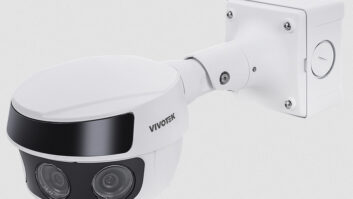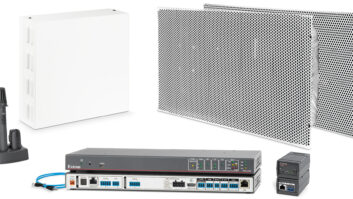This month, during the Omicron surge, I heard a story from someone who works in national-level live events. The house crew tests every shift and wears masks. Visiting talent and crew set their own policies. For a recent show, the house crew tested in, as usual. One of the touring crew members arrived later than their colleagues and unwittingly participated in the house testing, and tested positive. So, the rest of the touring crew was immediately tested. Mostly positive. The show was canceled.
Nobody was visibly sick, but this highlights the dilemma of Covid safety in the workplace, which can also extend beyond the workplace in ways that are not so simple. Covid safety has a price; Covid not-safety has a price. Inconsistencies are obviously rampant and impossible to avoid. We’ve never done this before and there’s not an easy win situation, no matter how pundits may want to pretend that there is.
Like all workplace safety issues, Covid, prevention (and prevention theater) can impact lives, livelihoods, opportunity, and revenue. People have different agendas for who and what matters most in the equation—that’s a time-honored workplace tension. But in other ways this is unlike any other work safety equation most of us have ever experienced.
In my time in professional theater, workplace safety was mostly a help (and sometimes an irritation, like when I couldn’t sweep up slippery fake snow because I wasn’t authorized to touch a broom). Overall during my time in events, safety was a plus and it mostly wasn’t going to cost anyone their jobs to implement it. At times it was dumb, but we could mostly afford it. We didn’t have to worry too much that others who relied on us would feel the impact of a workplace safety issue.
But now there are sacrifices asked of everyone no matter what their Covid-safety needs, views, or circumstances are, some more than others.
By extension, personal responsibility can mean different things. It can be taking responsibility for oneself and well-being. It can revolve around the impact on others. I know people whose personal responsibility is rooted primarily in not being the person who spreads Covid to their grandparents or someone else’s grandparents. For some, it’s rooted in not getting sick because people depend on them. Some people I know have to go to work, also because people depend on them, and Covid comes second. Some have loved ones in health care and understand their situation and sacrifices and don’t want to add to their burden. Some don’t have the luxury of choices. Some are more sensitive to the costs beyond Covid. For my sister, it’s about the harm of all-remote learning and her responsibility to be there for her students. She uses all the available tools, but her personal responsibility is to something other than Covid.
Everyone has to weigh it all up as best they can—every individual, business, and government—no one can avoid the equation, the mutual impact, or the mixed bag of policies and rules. As we head into the two-year anniversary, I hope your imperfect workplace safety plan is manageable, I hope any personal sacrifices and losses have been bearable, and that unforeseen positives have happened too.







